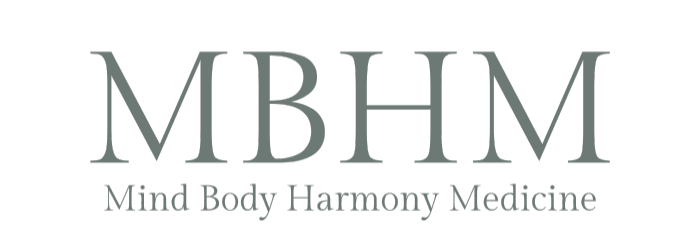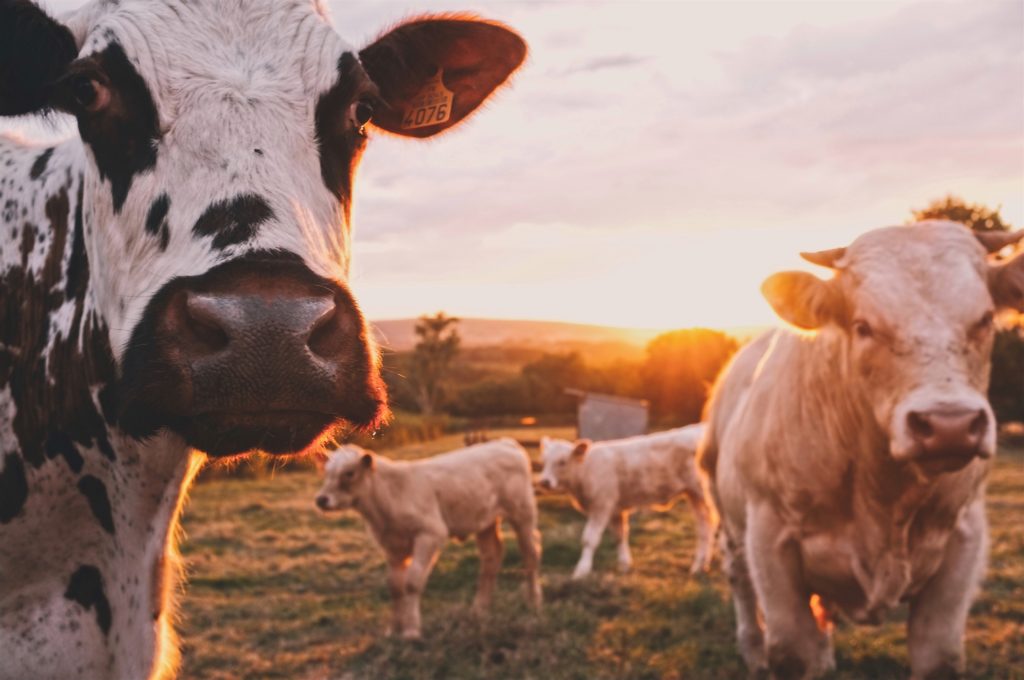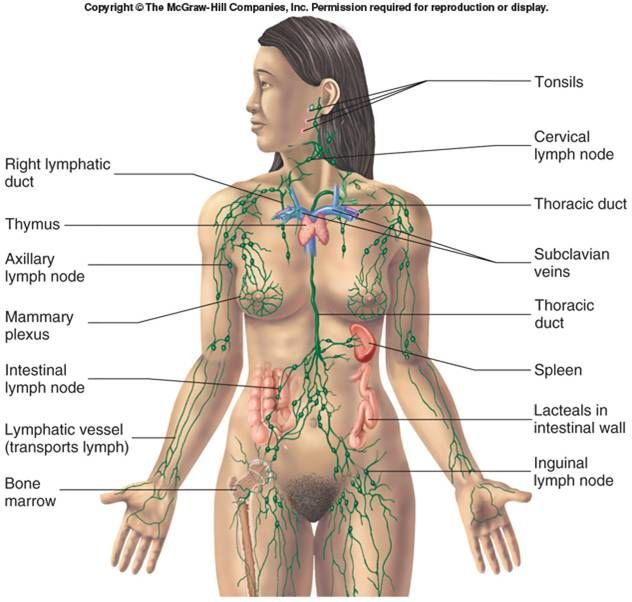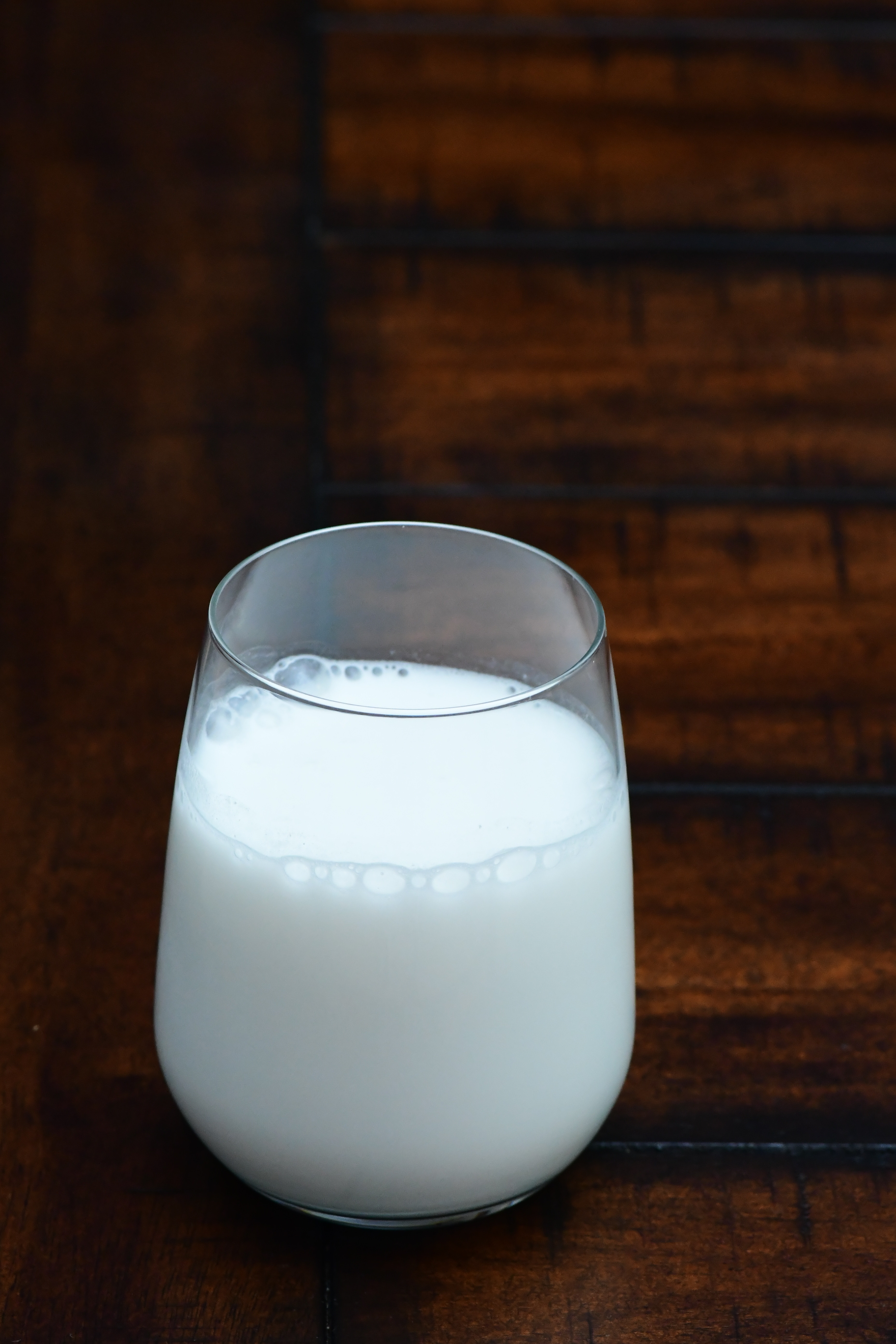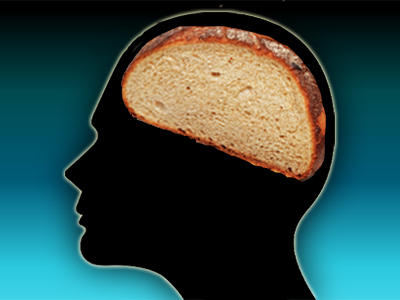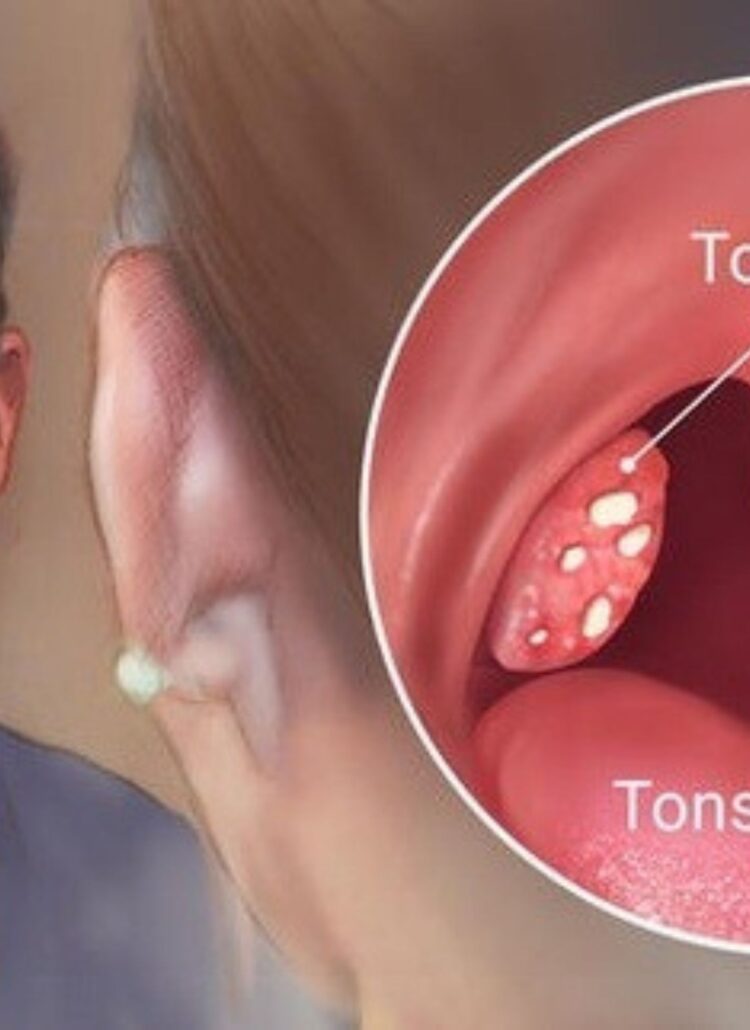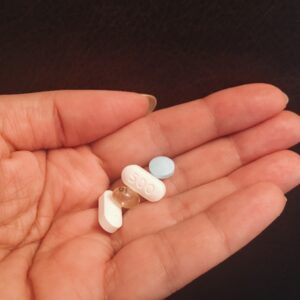Dairy is a very common food sensitivity that most people don’t even realize they have.
I stand by the comical (yet true) saying that functional medicine doctor Dr. Steven Noteworthy stated at numerous conferences, “Wheat is the devil and Dairy is the henchman!”
Food sensitivities can manifest in many different ways in the body. The most common foods to cause issues are wheat, dairy, and eggs.
Dairy in particular can cause diarrhea, constipation, tonsil stones, mucus, lymphatic congestion, inflammation, stomach pain, gas, bloating, acne, and even early menstruation in young girls.
Studies That Prove Diary Can Alter The Body
Still on the fence about cutting back or being dairy-free? Here are some studies that I have pooled together on how drinking milk can alter your body:
Acne In Teenagers
A cohort study of >4000 teenage boys found a positive association between drinking skim milk and acne.
They concluded that the acne is a result of the androgens (hormones) found in milk, along with the increase in Insulin-like Growth Factor 1 (IGF1) associated with milk consumption.
Early Puberty & Menstruation
Milk consumption in early childhood may contribute to accelerated menstruation by up-regulating early growth in body size.
Milk consumption may have both immediate and indirect and long-term impacts on timing of the timing of sexual maturation.
Steroid hormones are very potent compounds in dairy foods, which, exert profound biological effects in animals and humans.
Most of the previous knowledge about steroids is according to their physiologic and sometimes supra-physiologic concentrations of steroids, but recently it’s been found that these compounds even at very low doses may have significant biological effects.
Special concern should be paid to the effects, which may occur during certain and sensitive time points including perinatal and pubertal periods
The University of Medical Sciences in Iran conducted a study in 2013 that looked at 134 pre-pubertal girls age 4-12 and followed them for 6.5 years.
They observed that pre-pubertal intake of milk, but not cheese and yogurt, quickened the time that girls started their period.
Breast Cancer:
The literature is quite mixed in terms of the correlation between milk/dairy consumption and the risk of breast cancer.
Some have found no risk of BC and dairy consumption and others have found risk of BC and milk consumption but not with cheese and yogurt.
My opinion is that dairy is a congestive food, it does produce mucus, and it does congest the lymph nodes & lymphatic system.
Genetic Considerations:
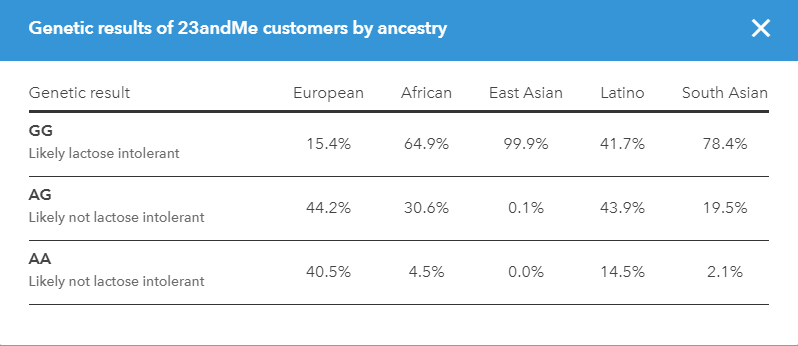
Genetics:
If you’ve done a genetic test such as 23 and me, you can actually see if you are predisposed to having issues with dairy/lactose.
Go to 23andme.com and when you log in you will go to “Wellness Reports.” In there, you will see “Lactose Intolerance.” Click on it, and you can see if you have 1 or 2 mutations in that gene.
Be advised, if you have only 1 mutation (AG), it will state you are “likely not lactose intolerant.” This is partially true. If you have 1 mutation and 1 normal gene, you CAN tolerate dairy to a degree, but your body is less efficient at breaking down lactose, and you can experience symptoms/ GI distress/tonsil stones when you eat too much dairy.
Whatever the amount that you’re able to tolerate without symptoms is unique to you.
Dairy In Other Countries:
Have you ever heard about people going to Europe and eating all the bread and cheese their little hearts desire, and feeling totally okay?!
I have heard this as well! This could be entirely plausible as to why people can eat those foods over in Europe and can be intolerant to them in the USA.
The kind of cow (A1-Beta Casein type cows vs. A2 cows), the food the cows are fed (grain fed vs. grass fed), the environment the cow is living in (stressed out or treated poorly vs. happy cows).
It is a fact that cows that are grass-fed produce more Conjugated Linoleic Acid (CLA) than those that are grain-fed. It’s well known that animals that are raised in a stressful, crowded environment produce more cortisol (stress hormones).
Humans Don’t Need Milk:
There is no need for humans to consume the milk of cows. Many studies indicate milk doesn’t prevent osteoporosis.
In fact, it was observed that the countries with the highest milk intake had the highest rate of bone fracture, and the lowest consumption of milk had the lowest rates of osteoporosis.
Milk doesn’t naturally contain vitamin D, it was made mandatory to fortify with vitamin D as the concern of Rickets rose in the 1900s. Milk consumption even has a correlation with an increased risk of Type 1 Diabetes.
In conclusion, you have to make the decision that is best for you. And any changes you make, remember, small ones are better than none at all!
More Helpful Blog Articles for you
- Tonsil Stones Can Be A Manifestation Of Dairy Sensitivity
- Mushrooms Lower Thyroid Antibodies: Hashimotos & Graves Disease
- Mirena IUD Increases Vaginal Infections & Risk of Breast Cancer
- Soy and Breast Cancer: Our gut bacteria determine how protective soy is
- Love Your Ovaries: The Truth About HPV Vaccines
- Foods That Can Worsen Symptoms In Autistic Children
- Gluten Causes Neurological Diseases
